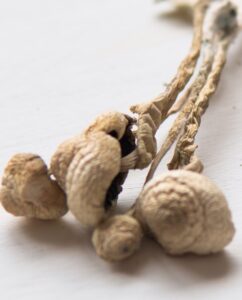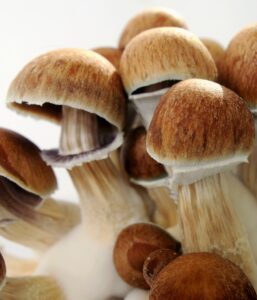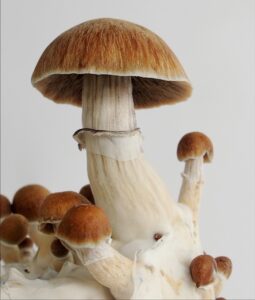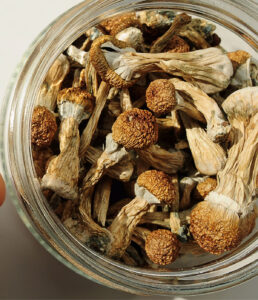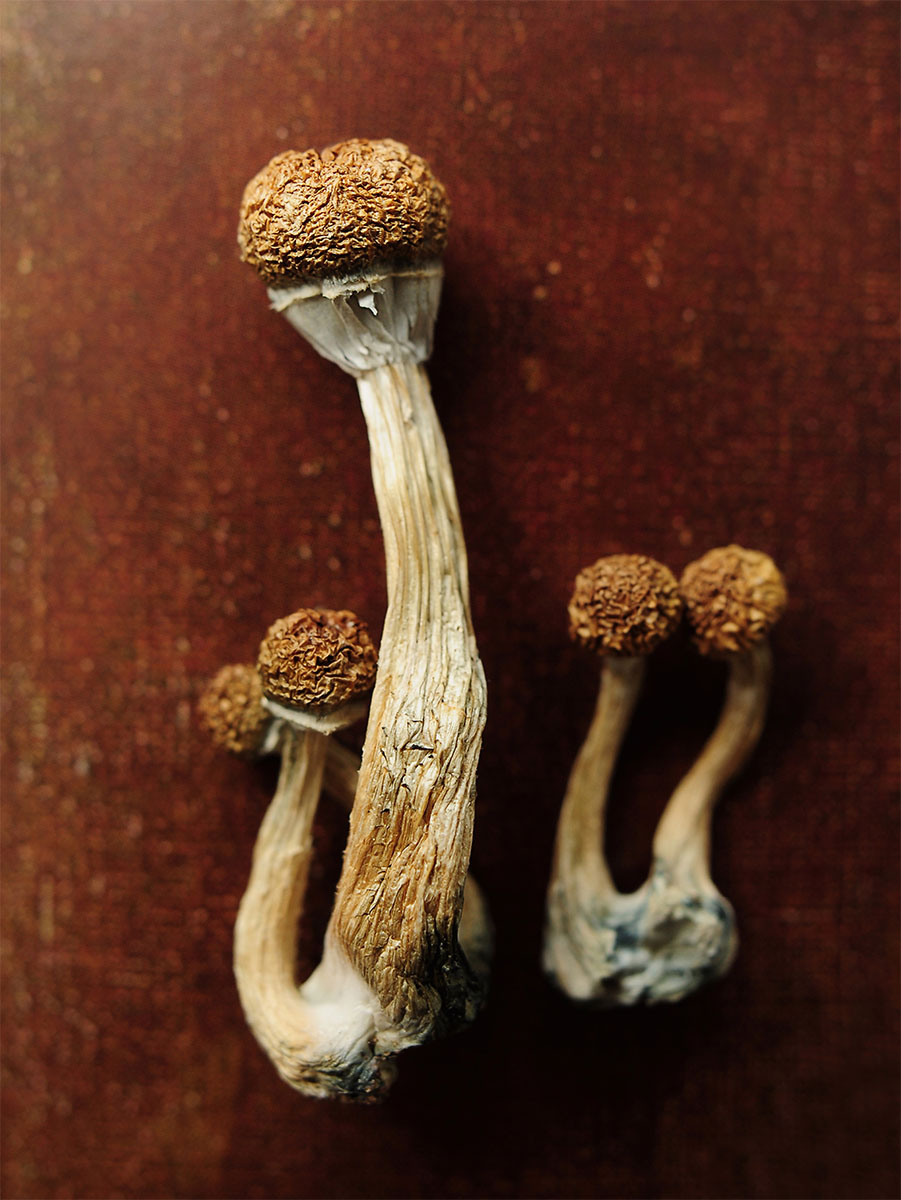
Summary of research article by Ross et al., published in the Journal of Psychopharmacology, on November 30, 2016.
In a groundbreaking study, researchers have investigated the effects of psilocybin, a naturally occurring compound found in “magic mushrooms,” on anxiety and depression in patients with life-threatening cancer. The randomized controlled trial aimed to evaluate the rapid and sustained symptom reduction following psilocybin treatment in comparison to a placebo. This research is significant as anxiety and depression are common and debilitating side effects for cancer patients, affecting their overall well-being and quality of life.
The study was conducted using a double-blind, placebo-controlled methodology with 80 participants diagnosed with life-threatening cancer and clinically significant anxiety and/or depression. Participants were randomly assigned to receive either a single dose of psilocybin or a placebo (niacin). The trial assessed the immediate and long-term effects of the treatment, with assessments carried out at baseline, 1 day, 2 weeks, and 3 months post-treatment. The primary outcome measures were the changes in anxiety and depression scores using the Hamilton Anxiety Rating Scale (HAM-A) and the Hamilton Depression Rating Scale (HAM-D).
Results demonstrated that the psilocybin group showed a significant and rapid reduction in anxiety and depression symptoms, as measured by HAM-A and HAM-D scores, compared to the placebo group. The effect was observed as early as one day post-treatment and persisted through the 3-month follow-up period. Participants who received psilocybin experienced a 71.8% reduction in anxiety symptoms and a 75.6% reduction in depression symptoms at the 3-month follow-up.
Remarkably, the majority of participants in the psilocybin group (78.1%) reported the experience as one of the most meaningful and spiritually significant events in their lives. This group also showed significant improvements in secondary outcomes, such as quality of life, spirituality, and attitudes towards death. Furthermore, the treatment was well-tolerated, with no serious adverse events reported.
The study’s results suggest that psilocybin has the potential to be an effective treatment for anxiety and depression in patients with life-threatening cancer. The rapid onset and sustained effects make it particularly promising for individuals who may not have the time or ability to undergo long-term therapy or for those who have not responded to traditional treatments.
These findings add to the growing body of research supporting the therapeutic potential of psychedelic substances, particularly in the context of mental health and end-of-life care. However, more research is needed to determine the optimal dosage, duration, and settings for psilocybin treatment, as well as to investigate its efficacy in a broader population of patients.
In conclusion, this randomized controlled trial provides strong evidence for the potential benefits of psilocybin in treating anxiety and depression in patients with life-threatening cancer. Its rapid and sustained effects, alongside the significant improvements in secondary outcomes, suggest that psilocybin could play a vital role in improving the quality of life and mental well-being of cancer patients.



